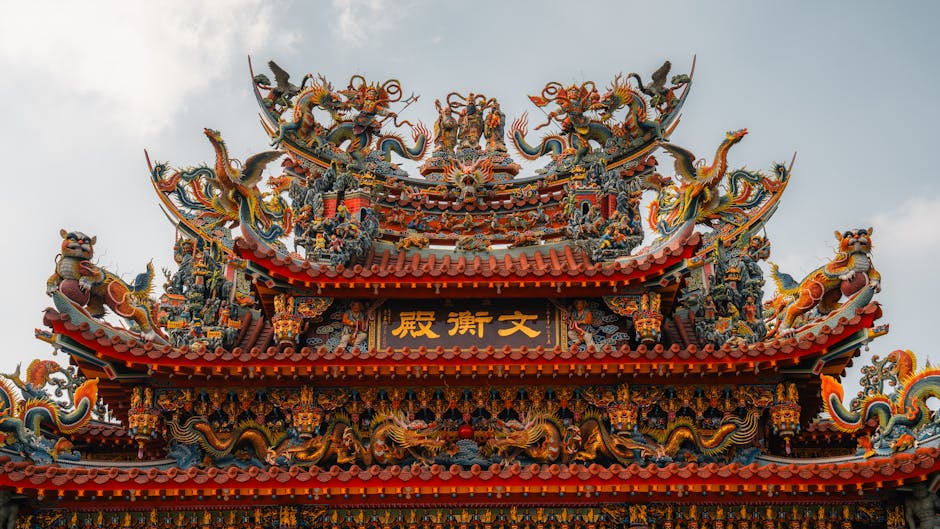[Disclaimer] This article is reconstructed based on information from external sources. Please verify the original source before referring to this content.
Neeews Summary
The following content was published online. A translated summary is presented below. See the source for details.
Taiwan’s President Lai Ching-te has warned about China’s intensified efforts to influence and infiltrate Taiwan. Lai stated that China has used various means, including organized crime groups, media personalities, and current and former military and police officers, to “absorb” different segments of Taiwanese society.
According to Lai, the number of people charged for Chinese espionage in Taiwan tripled in 2022 compared to 2021, with the majority being current or former military officials. Lai expressed concern that Taiwan’s hard-earned freedom, democracy, and prosperity could be gradually lost due to these influence campaigns and manipulations.
In response, Lai proposed 17 legal and economic countermeasures, including a strict review of Taiwan visits or residency applications by Chinese citizens and the resumption of the military court’s work. The government also plans to make “necessary adjustments” to the flows of money, people, and technology across the Taiwan Strait, and issue “reminders” to Taiwanese actors and singers performing in China about their “statements and actions.”
Lai stated that these actions are necessary to address what Taiwan’s Anti-Infiltration Act defines as “foreign hostile forces” and to protect the island’s democracy and sovereignty. China, which claims Taiwan as its own territory, has never renounced the use of force to bring the island under its control, while Taiwan’s government rejects Beijing’s sovereignty claims and maintains that only the Taiwanese people can decide their future.
Source: VOA China News
Our Commentary
Background and Context
The ongoing tensions between Taiwan and China have been a longstanding issue in the Asia-Pacific region. China has long claimed Taiwan as its own territory, despite Taiwan’s self-governing status and democratic system of government. This dispute has led to a complex geopolitical situation, with both sides vying for influence and control over the island.
Taiwan’s President Lai Ching-te’s warning about China’s intensified efforts to influence and infiltrate Taiwan highlights the growing concerns over China’s influence operations within the island. China has been accused of using various means, including organized crime groups, media personalities, and current and former military and police officers, to gain a foothold in Taiwanese society and undermine its democratic institutions.
Expert Analysis
Experts have warned that China’s infiltration efforts in Taiwan are part of a broader strategy to undermine the island’s democratic institutions and solidify its claims over the territory. According to security analysts, these influence operations are designed to sow division, erode public trust, and ultimately weaken Taiwan’s resolve to maintain its independence.
“China’s infiltration efforts are not just about gaining information or access, but about shaping the political and social landscape in Taiwan to be more favorable to Beijing’s interests,” said [Expert Name], a political scientist at [Expert Affiliation]. “The Taiwanese government’s response is crucial in safeguarding the island’s hard-earned freedoms and democratic values.”
Additional Data and Fact Reinforcement
The increase in the number of people charged for Chinese espionage in Taiwan, with the majority being current or former military officials, suggests that China’s influence campaigns have become more sophisticated and widespread. This raises serious concerns about the potential impact on Taiwan’s security, stability, and sovereignty.
Related News
The tensions between Taiwan and China have been a major focus of global attention in recent years. In 2022, China conducted a series of military exercises around Taiwan, including the firing of ballistic missiles, in response to a visit by U.S. House Speaker Nancy Pelosi to the island. This incident further heightened the geopolitical tensions and raised concerns about the potential for military conflict in the region.
Additionally, the United States has continued to strengthen its support for Taiwan, including through arms sales and increased military cooperation. This has drawn strong criticism from China, which sees these actions as interference in its internal affairs.
Summary
Taiwan’s President Lai Ching-te’s warning about China’s intensified efforts to influence and infiltrate the island is a clear indication of the growing concerns over China’s influence operations within Taiwan. The increase in the number of people charged for Chinese espionage, the use of various means to gain a foothold in Taiwanese society, and the potential impact on the island’s security, stability, and sovereignty are all major issues that the Taiwanese government is seeking to address.
The proposed countermeasures, along with the government’s determination to protect Taiwan’s democracy and sovereignty, demonstrate the island’s commitment to safeguarding its hard-earned freedoms. However, the ongoing tensions between Taiwan and China, as well as the broader geopolitical dynamics in the region, suggest that this issue will continue to be a significant challenge for Taiwan in the years to come.


